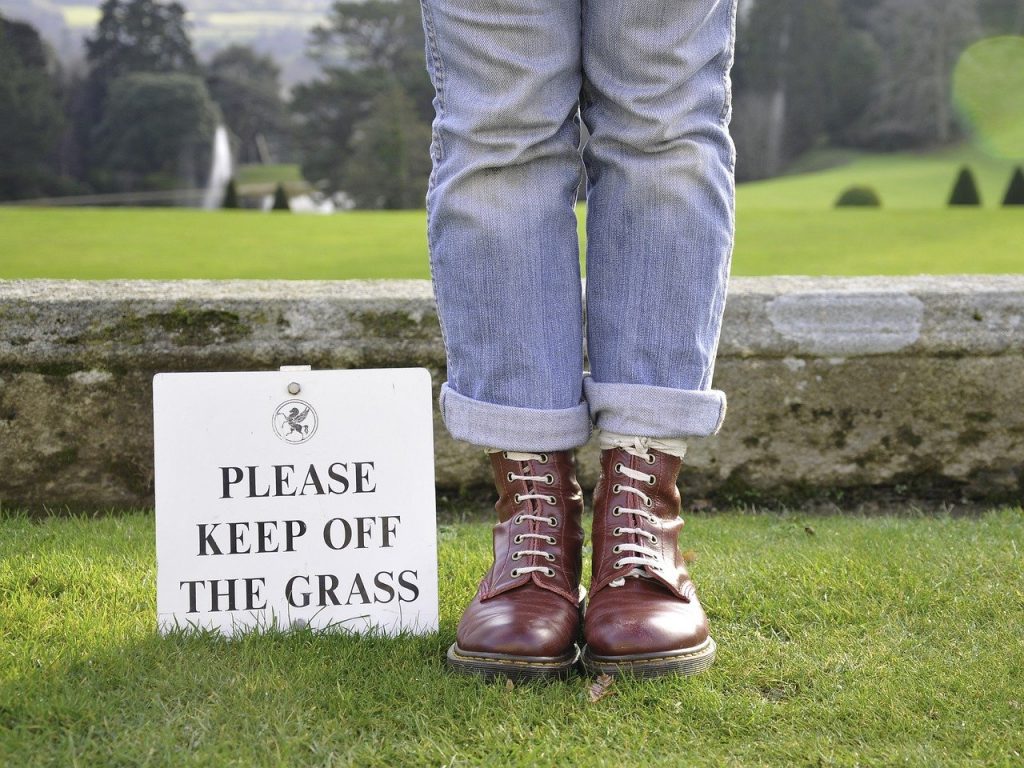Years ago I heard about a man who experimented by posting a sign in his garden reading, “DON’T SPIT ON THE FLOWERS!” He wanted to see how the neighboring kids would respond. As he watched out his window, sure enough, some children gathered around his garden, secretly spitting on his flowers, quickly looking around to see if they’d been spotted, and then giggling because they thought they’d gotten away with something!
 Welcome to human nature—the motivator behind the sentiment, “Nobody’s gonna tell ME what I can or can’t do!” Sometimes it surfaces as silent rebellious thoughts against parents and other times it erupts as rioting in the streets. The bottom line: Everyone wants autonomy.
Welcome to human nature—the motivator behind the sentiment, “Nobody’s gonna tell ME what I can or can’t do!” Sometimes it surfaces as silent rebellious thoughts against parents and other times it erupts as rioting in the streets. The bottom line: Everyone wants autonomy.
We see this clearly when Moses presented Israel with The Big Ten. God wanted those Hebrews, newly freed Egyptian slaves, to live lives that looked different from their pagan neighbors. He desired a holy nation. Observing the Law would protect them from the consequences of following idols and believing lies. The people agreed to obey. So God called Moses up the mountain to receive the Ten Commandments. Meanwhile, down in the camp, the people got restless and proceeded to break almost half of those laws right then and there, knowing full well that their behavior looked anything but holy!
1 Corinthians 15:56b explains, The power of sin is the law. Why? Because the Law demands obedience. It tolerates no compromise or excuses. And even though God also provided a way to temporarily atone for law breaking by creating the sacrificial system, He knew that no one could perfectly obey His Law. Centuries of failure proved that fact. So He came down Himself, God in the flesh (John 1:14), not only to keep the Law for us but also to make the ultimate sacrifice and completely remove our guilt (Hebrews 10:11-14).
 Do we therefore declare the Law evil? No! It serves its purpose by revealing mankind’s need for more than a list of do’s and don’ts. Once we realize we can’t keep it, the Law leads us to seek something even greater. It reveals our need for internal renewal rather than behavior modification or more will power. The Law uncovers our human weakness. And acknowledging our weakness opens us up to God’s help.
Do we therefore declare the Law evil? No! It serves its purpose by revealing mankind’s need for more than a list of do’s and don’ts. Once we realize we can’t keep it, the Law leads us to seek something even greater. It reveals our need for internal renewal rather than behavior modification or more will power. The Law uncovers our human weakness. And acknowledging our weakness opens us up to God’s help.
Ultimately God wants us following our hearts instead of following rules. Yet our natural hearts are rebellious. (We see this with children, on the news, and too often in our own lives.) So God offers us new hearts by making us new creations! Therefore if anyone is in Christ, he is a new creature; the old things passed away; behold, new things have come (2 Corinthians 5:17). We can now follow the new creation heart within us to make godly choices without needing external compulsion.
 Go ahead and spit on your flowers if you want to! (Hint: A watering can is more effective.) But by believing you truly are a new creation and then listening to the Holy Spirit’s leading, you will find yourself loving others, doing good, and leading a godly life, not because you have to, but because it’s who you are!
Go ahead and spit on your flowers if you want to! (Hint: A watering can is more effective.) But by believing you truly are a new creation and then listening to the Holy Spirit’s leading, you will find yourself loving others, doing good, and leading a godly life, not because you have to, but because it’s who you are!

